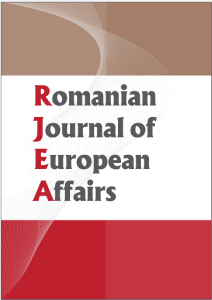E-government, Security and Liberty in the EU: a Role for National Parliaments?
Juliet Lodge
Abstract:
This paper shows how in the EU the institutionalisation of the norms, practices and procedures of accountability and transparency reflects politico-legal values and commitments to sustaining them, in ways that are visible, open, embedded, just, legitimate and not arbitrary. While administrative practices and cultures uphold them to a greater or lesser degree, practice erodes them and compromises both liberty and security. First, the paper outlines the norms; then it argues that institutions are not sufficient in themselves to sustain liberty and freedom because new communication technologies (ICTs) impact on e-government and e-justice in ways that are not simply procedural. They may expedite administration and result in ‘efficiency gains’, but they also impact on the practices of transparency and accountability, something underscored by their appropriation by the champions of ‘security’.
Keywords: accountability, communication technology, democracy, e-government
Beyond Connectivity. Future Challenges for E-inclusion Policies
Radu Gheorghiu, Manuela Unguru
Abstract:
The information society stays at the core of the Lisbon Strategy, despite the dot-com crisis and the still hidden macroeconomic impact of information and communication technology (ICT). Thus, i2010 has been the first concrete initiative of the revised Lisbon Strategy in 2005, while ICT represents by far the field with the largest budget in the 7th Framework Programme (FP7). On the industry side, the stakes are still high in the global competition, where Europe hopes for a place at least for communication technologies and services. However, the extreme dynamics of technology with its sometimes breathtaking promises, poses new challenges for e-inclusion. Firstly, the accelerating pace of innovation maintains a generation type of digital divide between countries with different level of development. Secondly, the changing nature of the network (e.g. web 2.0 with virtual communities; web 3.0 with location based interaction; semantic web; ambient intelligence and “the internet of things”) blurs the very distinction between inside and outside the information space. The paper explores these challenges and the associated policy options.
Keywords: e-inclusion, EU Framework Programme, i2010, ICT industry, Information society
The Politics of Evaluation in Co-financed Projects: the Case of Scottish Executive and the Evaluation of the Structural Funds
Delia M. Costân
Abstract:
This paper combines an analysis of the different theories expressed in the literature in relation to the process of evaluation and their empirical application to the case of a project evaluation undertaken by the Scottish Executive. The evaluation undertaken by the Scottish Executive is analysed in the context of the various theories and hypotheses expressed in the evaluation literature. Insight into the activity undertaken by the Scottish Executive and access to primary documents used, was facilitated by the author’s participation in a six week internship within the Structural Funds Division of the Scottish Executive. The analysis of the evaluation of the co-financed projects in Scotland revealed that the challenges to the process of evaluation in Scotland resulted in part from the existence of different understandings by the various stakeholders involved in the setting of the goals of the evaluation process. The author’s findings on the application of Article 4 in Scotland are that the different interpretations of Article 4 come from the European Commissions’ general approach to evaluation;, the Scottish Executives’ emphasis on meeting the absorption requirements of the Structural Funds and less on detailed evaluation, and the Programme Management Executives’ focus on supporting the project beneficiaries and less on evaluating the projects.
Keywords: EU Structural Funds, evaluation of co-financed projects, evaluation theories, Scottish Executive
The Global Economic Crisis and G20 Summit of April 2009: a Step Forward Towards Better Global Governance or Global Government?
Florin Bonciu
Abstract:
The paper analyzes the implications of the current global economic crisis for the decision-making mechanisms and interactions among the major players. The analysis explores the possibility that the changes implied and required by the economic crisis may lead either to better global governance or even a step closer to a possible, virtual, global government. The latter hypothesis is approached in a different way as compared to similar topic papers in the sense that a possible global government is seen as a long term objective result of the various reactions and solutions taken by individual entities.
Keywords: global economic crisis, global governance, global government
‘Do as I Say not as I Do’: EUtopia, the Ceecs and the Credibility of the EU Human Rights Regime
Ingi Iusmen
Abstract:
This article examines EU’s involvement in human rights from the perspective of a promoter of human rights norms. It is argued that a human rights EUtopia has emerged, i.e. there is a gap between the real and normative EU -when it comes to human rights – which affects the credibility of the EU’s human rights regime. The EU lacks a solid legal entrenchment of human rights and there are different degrees of human rights protection in the Member States which amount to different hierarchical concepts of human rights. There are legal shortcomings regarding EU’s human rights promotion to third countries, while the Copenhagen human rights conditionality attached to EU accession was vaguely stated and was not underpinned by EU internal human rights templates. Furthermore, the screening process of the candidates- by the use of double standards – entailed EU’s involvement in matters falling outside its own internal remits. Hence the credibility of the EU human rights regime is jeopardised by its attempt to export human rights externally– hence the normative and utopian claims – without having a real, substantial legal entrenchment of human rights internally.
Keywords: conditionality, EU human rights, human rights protection
Immigration and Integration Policies in UK
Anca Voicu
Abstract:
The number of immigrants received by the United Kingdom significantly increased during the past several years. Given the set of economic and social difficulties encountered, UK created for the first time a completely original system of Nationality Legislation and started to apply a severe policy of assimilation instead of integration. UK applied the Community Law concerning immigration, asylum and free movement of workers in its national interest, the whole European construction showing the “British specificities”. Even today, there are a lot of measures to be taken in order to come to a real integration policy of immigrants.
Keywords: assimilation, Asylum, community law, discrimination, Immigration, integration, multiculturalism, racism
Book Review: The Implication of the EU Membership on Immigration Trends and Immigrant Integration Policies for the Bulgarian Labour Market
Ivanka Petkova
Abstract:
A publication of the Economic Policy Institute, Sofia, the book presents the outcomes of a series of contributions discussing the implication of immigration on the Bulgarian labour market. The book contains detailed descriptions of best practices in integrating immigrants into the labour market in France, Germany, the Netherlands, Spain and the United Kingdom, which can be considered as the hot spots of migration inflows in the last two decades.
The tome will appeal to a wide audience inlcuding researchers and scholars of labour economics, sociology and political science.Policy makers within ministries and other public organisations and NGOs dealing with labour market issues and partners, will also find much to engage them withing this book.
Keywords: Bulgaria, Immigration, labour market






